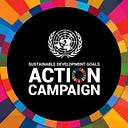The UN SDG Action Campaign hosted a Civil Society Strategic and Networking meeting in Bonn focused on the reform the global financial architecture
The UN SDG Action Campaign hosted the Civil Society Strategic and Networking Meeting in March at the UN in Bonn which provided a dialogue space for civil society, UN representatives and the Co-facilitators of the Summit of the Future to share views and agree on messages, priorities and strategies towards the Summit of the Future and beyond.

The Civil Society Strategic and Networking Meeting, hosted by the UN SDG Action Campaign at the United Nations in Bonn from 20 to 21 March 2024, provided a space for a dialogue among civil society organization representatives, an interaction and exchange with UN and other international organizations, as well as the opportunity to provide inputs to the Governments of Germany and Namibia, the two Co-facilitators of the Summit of the Future, to share views and agree on messages, priorities and strategies towards the Summit and beyond. The discussions revolved around the International Financial Architecture (IFA), with a focus on structural problems, prevailing issues, and recommendations.
50 leaders from civil society organizations participated, mostly from the Global South, but also from global networks. The meeting provided a unique space for substantive exchanges and increased interest in the Summit of the Future.

Civil society participants unanimously expressed that the current International Financial Architecture is dysfunctional and unfit to address today’s polycrisis.
They also highlighted the need to address the power imbalance between different countries in the international financial system. This is partially evident in the governance structure of International Financial Institutions (IFIs) such as the International Monetary Fund (IMF) and the World Bank where quotas and voting shares are distorted towards the Global North, leading to an inadequate representation of developing countries.
Additionally, the current structure and terms of IMF loan conditionalities including strict austerity measures undermine States’ obligations to human rights and commitments the Sustainable Development Goals (SDGs). The role of credit rating agencies was also highlighted as an aggravating factor for developing countries’ access to capital markets as well as their impact on interest rates. The participants also called for a coherent and transparent international debt workout mechanism to address current crippling levels of debt. CSO participants emphasized that debt servicing coupled with a lack of adequate fiscal policy space limits developing countries’ ability to invest in public financing for human rights protections and social services (e.g., 3.3 billion people live in countries where governments spend more on interest payments than on education or health, which disproportionately affects women and children).
Moreover, participants expressed concerns about the lack of a coherent international tax architecture which allows for illicit financial flows, tax evasion and tax avoidance (estimated to a total loss of 480 billion US dollars a year in revenues of national governments to global tax abuse). In addition, some participants expressed concern about the increased global military spending when crucial investments in human rights, climate and the SDGs are needed.
CSO participants brought attention to the importance of a fair international trading system and pointed out several flaws in the current trade agreements (ranging from unfair intellectual property rights to inhibited access to food and natural resources). This contributes to the net outflow of resources from the Global South to the Global North and requires structural transformation.
Participants also pointed to a lack of access to concessional climate finance and affordable technology that prevents vulnerable countries from increasing resilience to crises and investing in the green transformation of their economies.
CSO participants explored with concern how multinational corporations undermine human rights and the achievement of the SDGs. Due to an overall lack of accountability and transparency, large corporations increase profit margins through “destructive finance” at the expense of people and the planet, exacerbating inequalities. Participants also questioned the lack of governance frameworks and regulation in the digital sector and the concentration of power exercised by a few technology companies. They expressed similar worries about the financial, agricultural and pharmaceutical sectors where the concentration of power by large corporations undermines protection and promotion of human rights and impacts access to food and vaccines.
Furthermore, participants lamented the lack of policy coherence across different policy areas (trade, human rights, etc.) and the lack of coherence among government ministries on national positions at various international fora.
Finally, participants also highlighted the importance of civil society in policy processes and not only as providers of social services.



